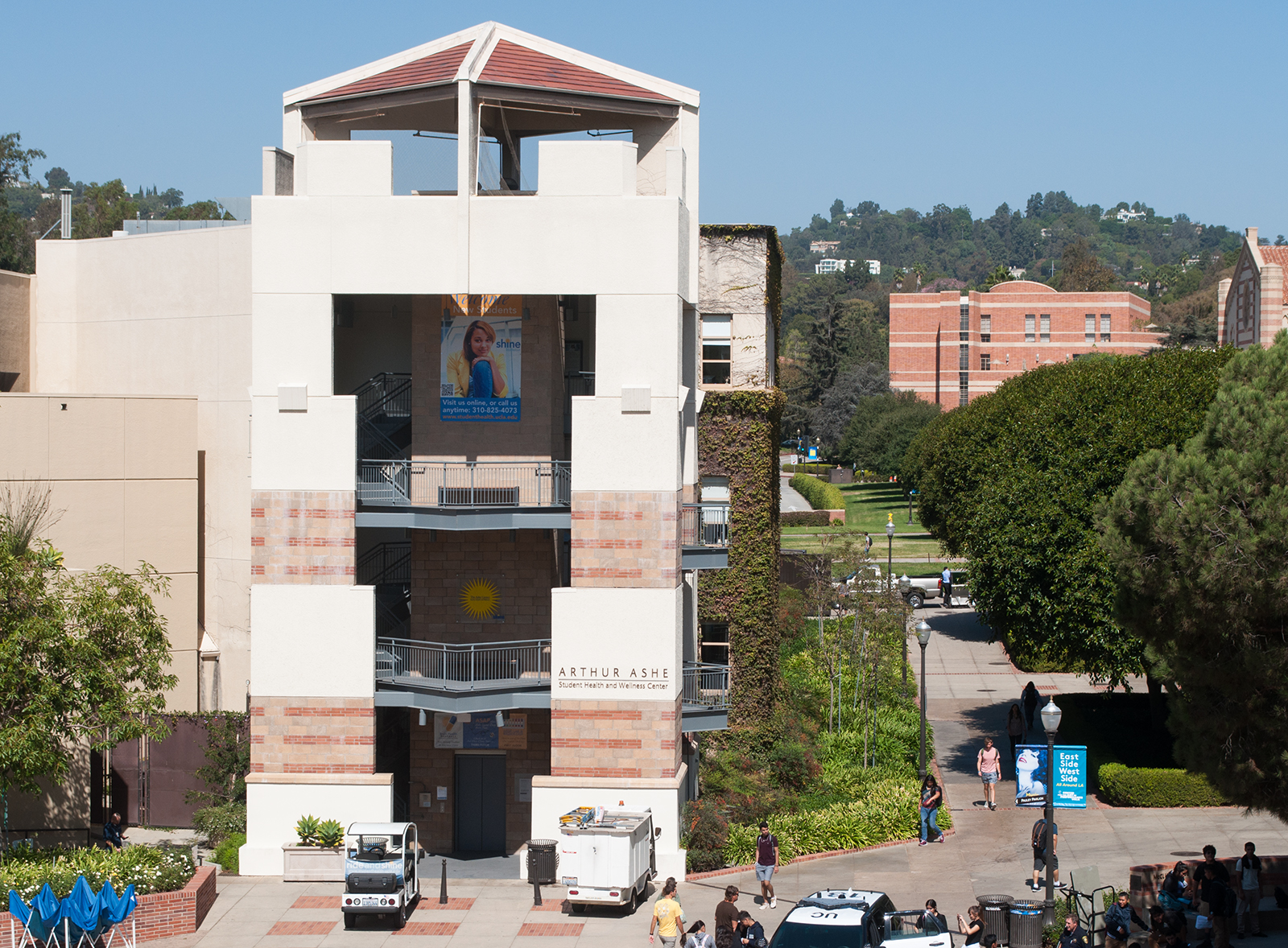State senate bill revives possibility for abortion medication at public universities

A California senate bill would require all California public universities to provide students access to medical abortions at campus health facilities, such as the Ashe Center. (Daily Bruin file photo)
By Kate Nucci
April 29, 2019 1:14 a.m.
The Ashe Center may offer students medical abortions starting January 2023 if a California senate bill passes.
Senate Bill 24 was introduced in December 2018 by Democratic State Sen. Connie Leyva, who represents District 20. It would require all University of California and California State University schools to provide students access to medical abortions at campus health facilities. The bill has passed through the California Senate Health Committee and the Education Committee.
Medical abortions are already covered by the UC Student Health Insurance Plan but are not currently offered at any UC campuses. Schools within the CSU system do not provide their students university-specific health insurance.
According to the UCLA Health website, medical abortions are performed in the first nine weeks of pregnancy. At UCLA medical centers, they involve the prescription of mifepristone, which blocks the pregnancy hormone progesterone and causes the lining of the uterus to shed, and misoprostol, which causes uterine contractions, according to the website. UCLA Health describes the process as “safe and effective” and states there are no known long-term risks from the procedure.
Rachel Lee, a professor of English and gender studies and the director of the UCLA Center for the Study of Women, said medical abortions are more efficient and less invasive than surgical abortions.
“It is a difficult decision, and it should not be made harder by making it more stigmatizing through an artificial limit on the technologies that are available,” Lee said.
Sophia McMurry, co-director of the Bruin Consent Coalition and a third-year philosophy student, said although students can access medical abortions off campus at centers run by UCLA Health, the bill would still help students at other UC campuses that may not have off-campus medical centers nearby. She added it could also relieve some of the stress felt by students seeking abortions.
“Everyone knows where the (Ashe Center) is, they might know the nurses and the practitioners that are there,” she said. “So I think it’s more about creating an environment that’s really open and comforting and respectful.”
This is not the first time a bill like this has arrived in Sacramento. The first bill, Senate Bill 320, passed through both houses of the legislature in August but was vetoed by then-Gov. Jerry Brown in September.
Students from campus organizations such as justCARE: Campus Action for Reproductive Equity, the Reproductive Health Interest Group and the Bruin Consent Coalition all said they have advocated for the passage of SB 24.
Ally Power, a graduate student in epidemiology and a member of the RHIG, said she has high hopes the current bill will become law because the previous bill, SB 320, was approved by the legislature in August. She added she was also hopeful because after Brown vetoed SB 320, then-Lt. Gov. Gavin Newsom told the San Francisco Chronicle he would have signed it into law had he been governor.
Brown refused to sign the bill in September citing evidence UC and CSU students have access to abortion clinics within five to seven miles of their campuses.
A study published by UC San Francisco showed Californian students may have to travel around an hour to get off-campus medical abortion treatments, Power said. She added that time commitment could interfere with students’ academic performances, especially if they come from low-income backgrounds.
“It can require students to miss class or miss school,” she said. “It affects your academic success. It affects well-being … (and) if there’s not access to reliable transportation, or not a flexible work schedule, then it’s impeding their ability to access the care that they have decided they want.”
Lee said low-income students also might not have access to comprehensive information regarding sexual health and reproductive choice, and that SB 24 would help these students become more aware of the resources available to them by making abortions a more viable option on campus.
The UC has not taken a position on the bill, said UC spokesperson Sarah McBride.
McMurry said easy access to abortion services is necessary to allow women to exercise their constitutional rights.
“What it comes down to is, again, being able to exercise bodily autonomy,” she said. “Okay, it’s about getting to choose, ‘Yeah, what’s inside my body?’”
Power said she thinks a majority of Californians support SB 24. She added she thinks if students were more aware of the bill they would be more active in advocating for its passage.
She said she and members of other campus women’s health advocacy organizations hope to travel to Sacramento in June to lobby for the bill.
“Once someone has talked with their clinician and decided that this is something that they want to do, then, personally, I feel it should be available on campus for them to do that,” Power said.


